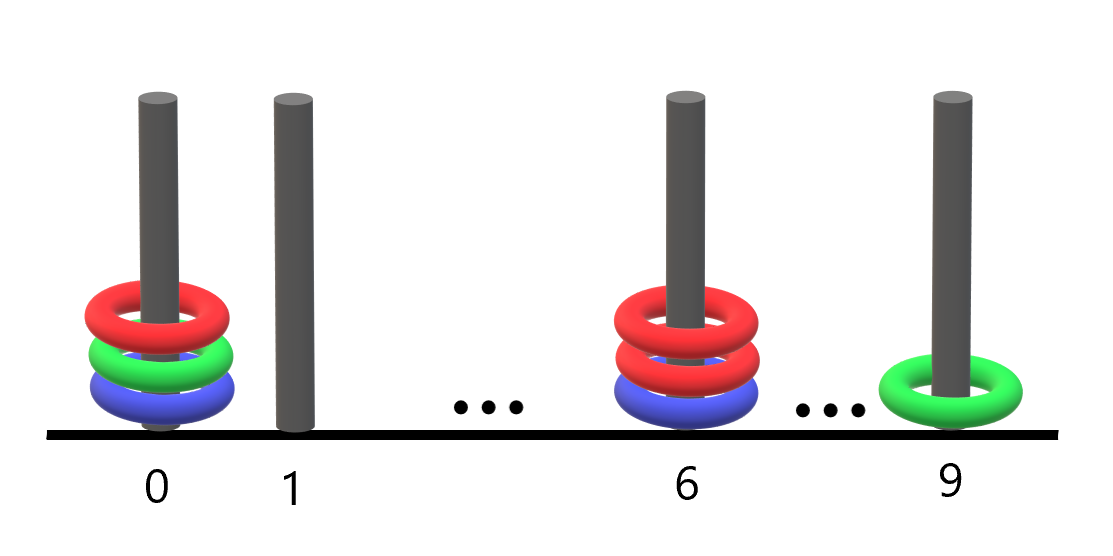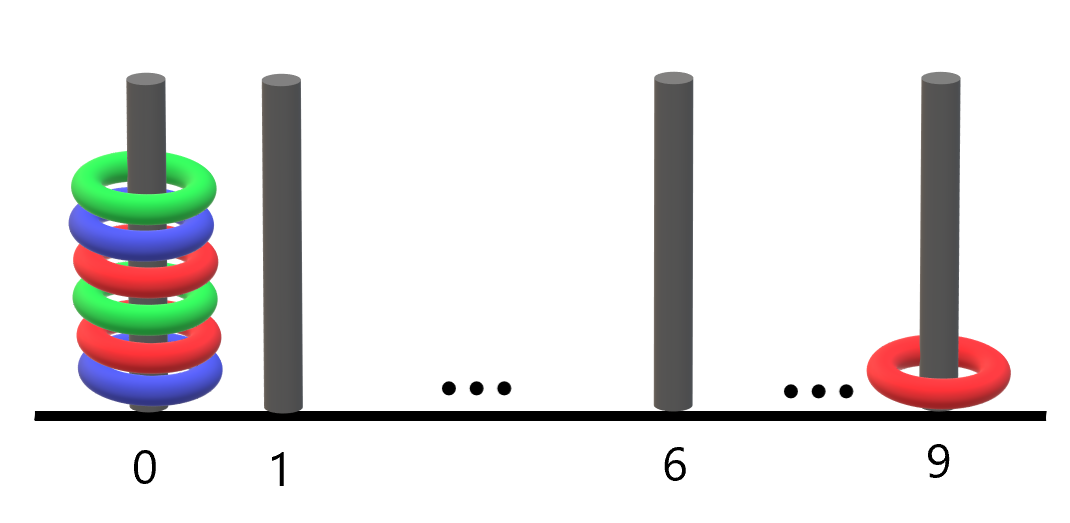
g2101_2200.s2103_rings_and_rods.readme.md Maven / Gradle / Ivy
Go to download
Show more of this group Show more artifacts with this name
Show all versions of leetcode-in-java Show documentation
Show all versions of leetcode-in-java Show documentation
Java-based LeetCode algorithm problem solutions, regularly updated
The newest version!
2103\. Rings and Rods
Easy
There are `n` rings and each ring is either red, green, or blue. The rings are distributed **across ten rods** labeled from `0` to `9`.
You are given a string `rings` of length `2n` that describes the `n` rings that are placed onto the rods. Every two characters in `rings` forms a **color-position pair** that is used to describe each ring where:
* The **first** character of the ith pair denotes the ith ring's **color** (`'R'`, `'G'`, `'B'`).
* The **second** character of the ith pair denotes the **rod** that the ith ring is placed on (`'0'` to `'9'`).
For example, `"R3G2B1"` describes `n == 3` rings: a red ring placed onto the rod labeled 3, a green ring placed onto the rod labeled 2, and a blue ring placed onto the rod labeled 1.
Return _the number of rods that have **all three colors** of rings on them._
**Example 1:**

**Input:** rings = "B0B6G0R6R0R6G9"
**Output:** 1
**Explanation:**
- The rod labeled 0 holds 3 rings with all colors: red, green, and blue.
- The rod labeled 6 holds 3 rings, but it only has red and blue.
- The rod labeled 9 holds only a green ring.
Thus, the number of rods with all three colors is 1.
**Example 2:**

**Input:** rings = "B0R0G0R9R0B0G0"
**Output:** 1
**Explanation:**
- The rod labeled 0 holds 6 rings with all colors: red, green, and blue.
- The rod labeled 9 holds only a red ring.
Thus, the number of rods with all three colors is 1.
**Example 3:**
**Input:** rings = "G4"
**Output:** 0
**Explanation:** Only one ring is given. Thus, no rods have all three colors.
**Constraints:**
* `rings.length == 2 * n`
* `1 <= n <= 100`
* `rings[i]` where `i` is **even** is either `'R'`, `'G'`, or `'B'` (**0-indexed**).
* `rings[i]` where `i` is **odd** is a digit from `'0'` to `'9'` (**0-indexed**).© 2015 - 2024 Weber Informatics LLC | Privacy Policy